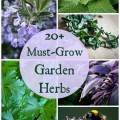
Photo courtesy of wsilver
Gardens are recycling friendly. Vegetable gardens allow space for decomposition and return of biodegradable elements back to the earth. Items that would typically be thrown away- such as plant material, produce and paper products- can be used as mulch or to fertilize garden soil. In addition to recycling biodegradable items in the garden, plastics, wood and metal recycling can come in handy also. When non-biodegradable items have worn out their usefulness in the vegetable garden, be sure to take them to the recycling center.
Starting Seeds
Each spring, home gardeners get a jump start on the season by starting seeds indoors. Peat pots or seed starting flats can be purchased for this purpose. However, gardeners who enjoy recycling will relish the idea of reusing some basic household items for starting seeds. Empty toilet paper rolls, paper towel rolls, yogurt containers and egg cartons can be used for starting seeds.
To use paper rolls, simply cut the rolls 3-4 inches long. Press in the edges along one end to form a bottom. Place the paper rolls closely together in a flat and fill each with dirt. Yogurt containers and egg cartons do not require any preparation before filling them with dirt, except you may want to poke a hole in the bottom for drainage.
Composting
Composting is a way of recycling fresh produce scraps by returning the plant material to the soil for fertilizing it. Save fruit and vegetable scraps from your kitchen in a compost bin. Anything can be used as a compost bin, but it should have a tight fitting lid to keep odors in and pests out. When the compost bin is full, dump the produce scraps in a compost pile, or simply bury them in the area of your garden. Worms will help break down the plant material into valuable fertilizer.
Green Houses and Garden Cloches
Green houses and garden cloches are coverings placed over plants in the vegetable garden to allow sunlight through while keeping cold and frost out. They can be used to extend the growing season by warming the soil around the plants when it is still very cold outdoors. They can also be used to protect the plants in the vegetable garden from an unexpected cold spell during the normal growing season.
Green houses and garden cloches can be constructed by recycling plastic. In the case of a green house, you would construct a frame from wood, metal or plastic piping and secure the clear plastic around the frame. On a smaller scale, a garden cloche can be made from something as simple as a milk jug with the bottom removed. Buckets, jugs and any other clear plastic recycling can be used to cover a plant in a vegetable garden as a make-shift cloche.
Mulching
Recycling plant material in the form of hay, grass clippings, or wood chips can be done by mulching. Not only do these plant materials feed the soil as they decompose, but they also provide an important barrier around plants in the vegetable garden to hold moisture in the soil and block weeds at the same time.
Watering
Household waste water, also called greywater, can be used to water the vegetable garden as long as it is not contaminated. Common waste water used includes water from dishwashing, bathing, or laundry. Recycling waste water from the household reduces water consumption. Rain barrels can also be used by collecting rain water from gutters and downspouts to be used in the vegetable garden. Used trash cans and similarly large items for recycling make wonderful rain barrels.









